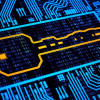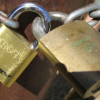Quantum leap in encryption
It's a hacker's nightmare but a dream for bankers and spies: A computer network so secure that even the simplest attempts to eavesdrop will interrupt the flow of data and alert administrators to the snooping.
The work by researchers at Harvard University, Boston University and BBN Technologies is the closest scientists have come to a real-world quantum encryption system that uses light particles called photons to lock and unlock information instead of random-number "keys."
Using the technology, the scientists can swap data, send e-mail and visit one another's websites as their data is protected.
Researchers are still exploring its practical applications, but some say it could one day replace the encryption now used for most secure Internet traffic, and shield financial or government communications.









































































